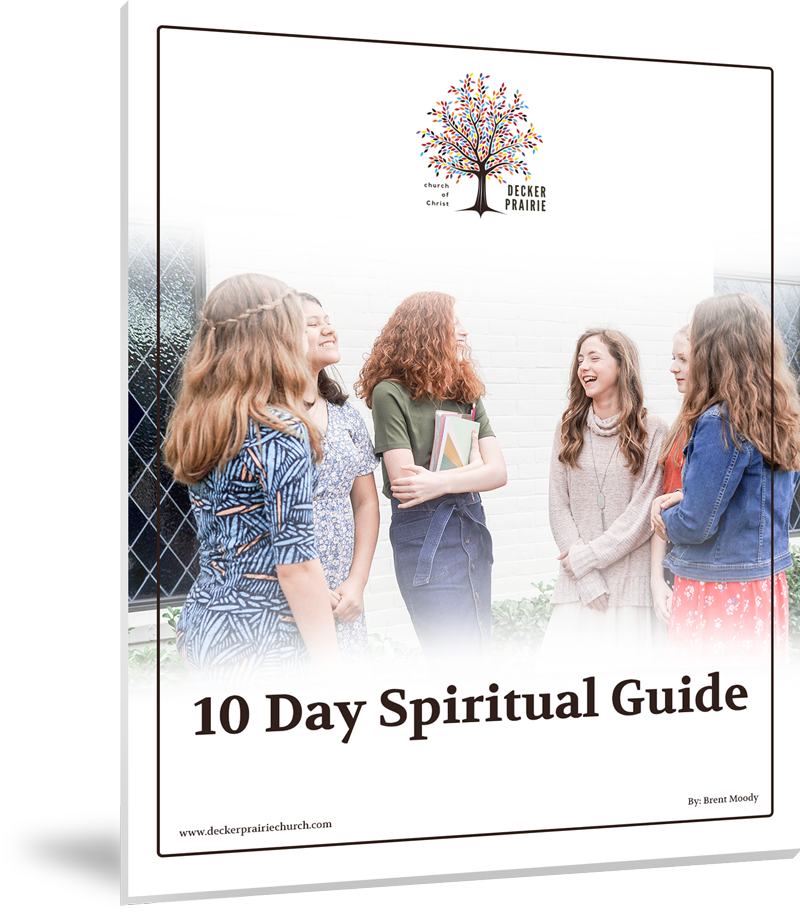This is part one of a two part lesson in the conscience. We will be setting some basics in this lesson and follow up with how we deal with disagreements of conscience.
Paul says in verse 1 of Acts 23 he has lived his life before God in good conscience. How could that be?
1. Trained as a Pharisee, Acts 22:3
2. Persecuted Christians – beating, killing and putting them in prison, Acts 22:4, 19
3. Stood by and approved of Stephen’s murder, Acts 22:20.
Clearly we can learn some things about the conscience by consider Paul’s statement.
What is the conscience?
⁃ your conscious awareness of what you believe is right and wrong
⁃ An inner moral compass or “heart” metaphorically
There are 34 uses of the word conscience in 30 verses, so it’s discussed throughout the Bible, both positively and negatively. It can be good and clear, it can be cleansed and perfected, but it can also be weak, wounded, defiled, encouraged to sin, evil, seared.
The conscience can be insensitive (seared) but also hyper-sensitive (weak). Subsequent sermons may cover some of these details more fully. Today we need to consider some basics about the conscience that Paul teaches us.
Thoughts:
1. My conscience is my guide and I should obey it. God has created us in His image with the ability to think. It is the mechanism God has created to monitor our actions. People who know nothing about the Bible still have an “inner voice” that determines right from wrong.
2. My conscience can be flawed. Paul is an example. He was completely wrong before Jesus called him. He was trying to do what was right but he didn’t know everything yet. He eventually got to a better understanding of what God wanted from his life. This leads to a couple of important truths. First, A flawed conscience can be changed. In fact our conscience should change as we mature in our faith. If I still believe exactly the same way today as I did 10 years ago about everything it may indicate that I’m not growing much. It is not that core beliefs will be altered in time, but certainly some matters of opinion will change as we grow. Second, my conscience should not be someone else’s guide. We should each follow our own conscience, it is the mechanism through which we make decisions. No two people have the same conscience. Typically they overlap somewhat but it is still our own. I should not be trying to force my conscience on anyone else. I certainly do not want them to force theirs on me. The goal is for us to align our consciences with God’s will.
3. God is Lord of Conscience. What matters is God’s will. Two people can share the same belief in God’s will and still disagree about matters of opinion. Anything stated from the pulpit should be thoroughly checked. It is of utmost importance that we align our conscience standards with what God considers right and wrong, not just with human opinion.
It doesn’t matter if it is how we have always done it. It doesn’t matter if it feels right. Actually these are both forms of emotionalism. Traditionalism is a form of emotionalism because it is hard to let go of what we are used to even if we can’t back it up with scripture. Clearly the idea of doing what feels good can also lead us astray if it’s not based on truth. What matters is that God is glorified by what we do.
Martin Luther said “my conscience is captive to the Word of God.” He was unwilling to recant his statements to please the Catholic Church. Peter said it this way in Acts 5:29 – “we must obey God rather than men.”
If I make myself or anyone else lord of my conscience that is idolatry. I have put something else in the place of God.
Next time we’ll discuss how we handle disagreeing consciences. It’s not easy. In 1 Cor. 8-10 and Romans 15-15 Paul is working on uniting people who come from different backgrounds. He says to follow your conscience but be patient with those with whom you differ.
1Pet. 3:21- baptism, which now corresponds to this, now saves you, not as a removal of dirt from the flesh but as an appeal to God for a good conscience through the resurrection of Jesus Christ.
Note: Some thoughts (and illustrations) are based on the good work of Andrew David Naselli & JD Crowley in their book Conscience.
Sermon by Brent Moody
Watch on Vimeo



